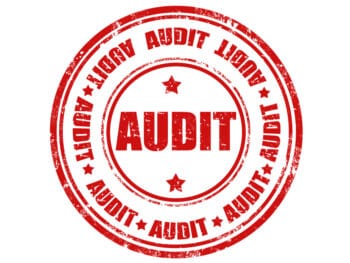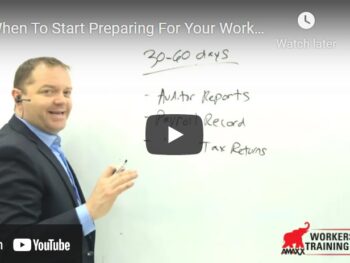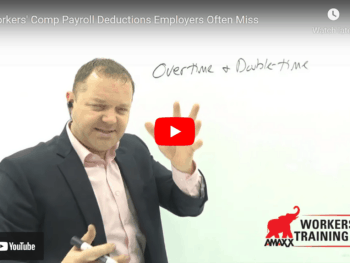HERE’S WHAT HAPPENED
Lorber, a California-based textile manufacturer, sought and obtained permission to satisfy its workers’ compensation obligations by self-insuring, securing its obligations with a letter of credit. In February 2006, Lorber filed a Chapter 11 bankruptcy petition. It subsequently defaulted on its workers’ compensation obligations. The California Self-Insurers Security Fund (Fund) assumed Lorber’s liabilities and took over payments of benefits, drawing down Lorber’s letter of credit until it was exhausted, then making payments directly to injured workers, for which it was entitled to reimbursement under California Labor Code § 3744.
The Fund filed an objection to Lorber’s proposed Chapter 11 Plan, which treated the reimbursement amounts owed to the Fund as a general unsecured claim. The Fund asserted that its reimbursement claim was entitled to priority status under § 507(a)(8)(E)(ii) of the Bankruptcy Code as an excise tax on a transaction that occurred in the three years preceding the bankruptcy petition. The bankruptcy court held that the Fund’s claim qualified as an excise tax, but that the transaction giving rise to the tax was Lorber’s application for self-insurance in 1992. Because the transaction occurred more than three years prior to the bankruptcy petition, the court denied the Fund’s claim priority. (workersxzcompxzkit)
Both Lorber and the Fund appealed the bankruptcy court’s decision to the Bankruptcy Appellate Panel (BAP). Lorber argued that the reimbursement claim did not qualify as an excise tax; the Fund argued that the bankruptcy court erred in determining the transaction date. The BAP held that the claim was an excise tax and affirmed the denial of priority, but disagreed with the bankruptcy court regarding the date of the transaction giving rise to the tax. The BAP held that the relevant transaction was Lorber’s default on its self-insurance obligations, that since Lorber defaulted post-petition, the transaction did not occur in the three years prior to filing for bankruptcy and, therefore, that the Fund’s claim was not entitled to priority status.
HERE’S HOW THE COURT RULED
In a recent decision from the U.S. Court of Appeals for the Ninth Circuit [In re Lorber Indus., 2009 U.S. App. LEXIS 9617 (9th Cir. May 4, 2009)], the court held that the Fund’s reimbursement claim did not qualify as an excise tax and accordingly did not address when the transaction giving rise to the tax occurred. Although its reasoning differed from the BAP, the Ninth Circuit affirmed the holding denying priority to the Fund’s claim. Noting first that the Bankruptcy Code did not define “excise tax,” the court reviewed several decisions from other circuits in which the issue (or similar issues) had been litigated and concluded that in order to be an excise tax, two requirements must be met: (1) the pecuniary obligation must be universally applicable to similarly situated entities; and (2) according priority treatment to a government claim should not disadvantage private creditors with like claims. The court observed that since at least one private creditor could assert a claim against the debtor similar to that of the Fund, the Fund’s claim did not qualify as an excise tax.
See generally Larson’s Workers’ Compensation Law §§ 102.04, 150.01, 150.02.
Author: Thomas A. Robinson, J.D.
Tom Robinson, J.D. is the primary upkeep writer for Larson’s Workers’ Compensation Law (LexisNexis) and Larson’s Workers’ Compensation, Desk Edition (LexisNexis). He is a contributing writer for California Compensation Cases (LexisNexis) and Benefits Review Board – Longshore Reporter(LexisNexis), and is a contributing author to New York Workers’ Compensation Handbook(LexisNexis). Attorney Robinson is an authority in the area of workers’ compensation and we are happy to have him as a Guest Contributor to Workers’ Comp Kit Blog. Tom can be reached at: compwriter@gmail.com.
http://law.lexisnexis.com/practiceareas/Workers-Compensation
Click on these links to try it for yourself.
WC Calculator www.ReduceYourWorkersComp.com/calculator.php
TD Calculator www.ReduceYourWorkersComp.com/transitional-duty-cost-calculator.php
WC 101 www.ReduceYourWorkersComp.com/workers_comp.php
Do not use this information without independent verification. All state laws are different. Consult with your corporate legal counsel before implementing any cost containment programs.
©2008 Amaxx Risk Solutions, Inc. All rights reserved under International Copyright Law. If you would like permission to reprint this material, contact Info@WorkersCompKit.com

























